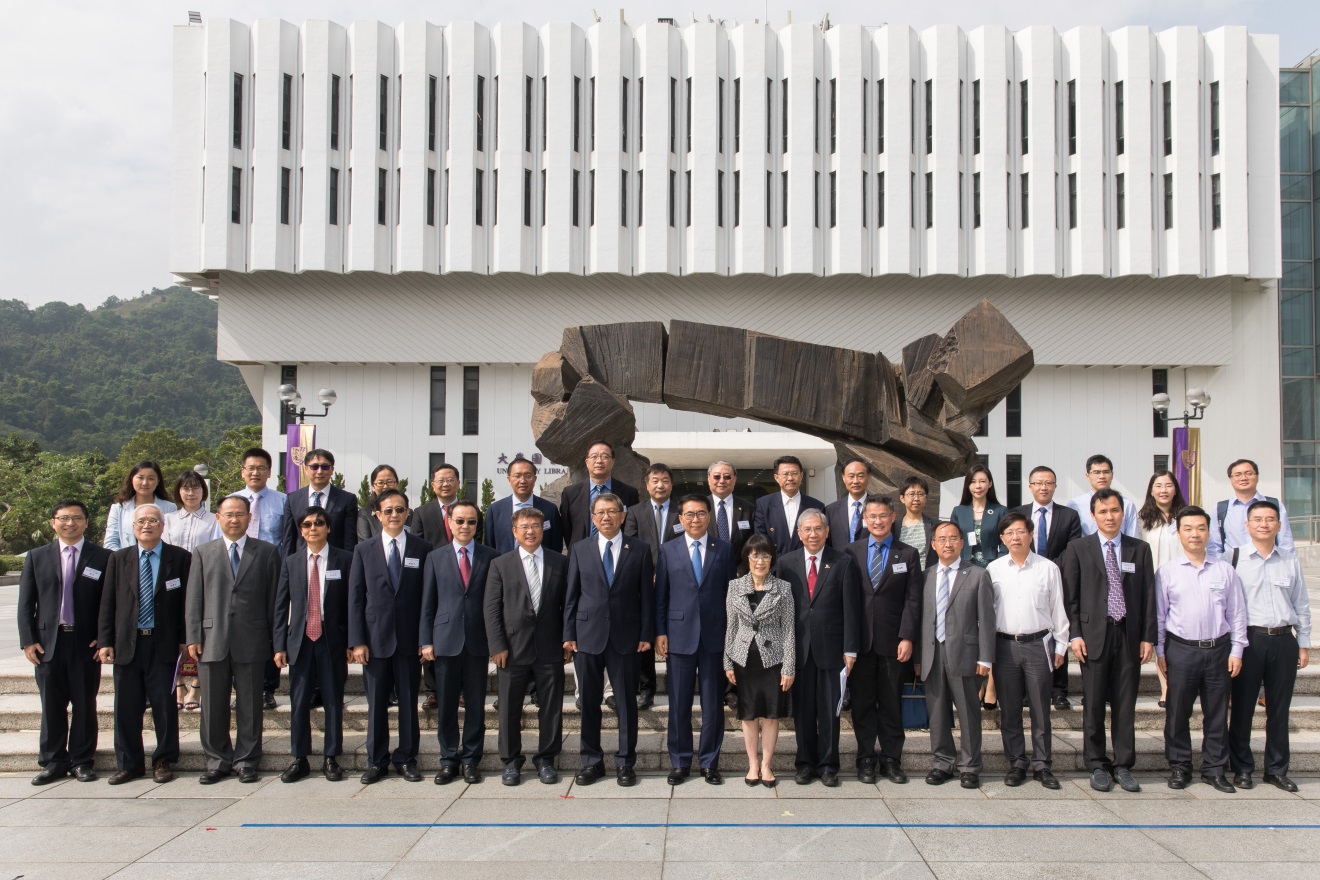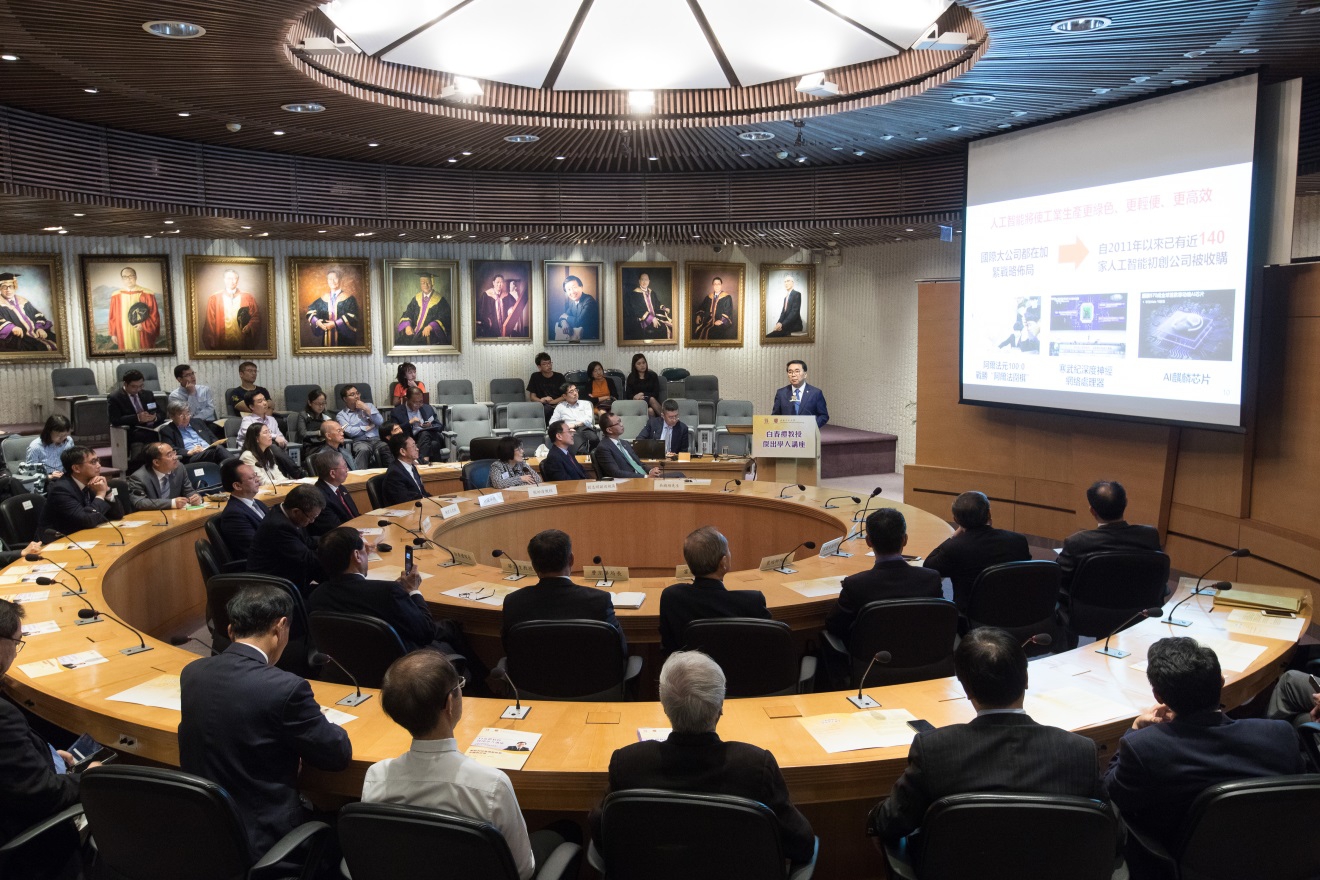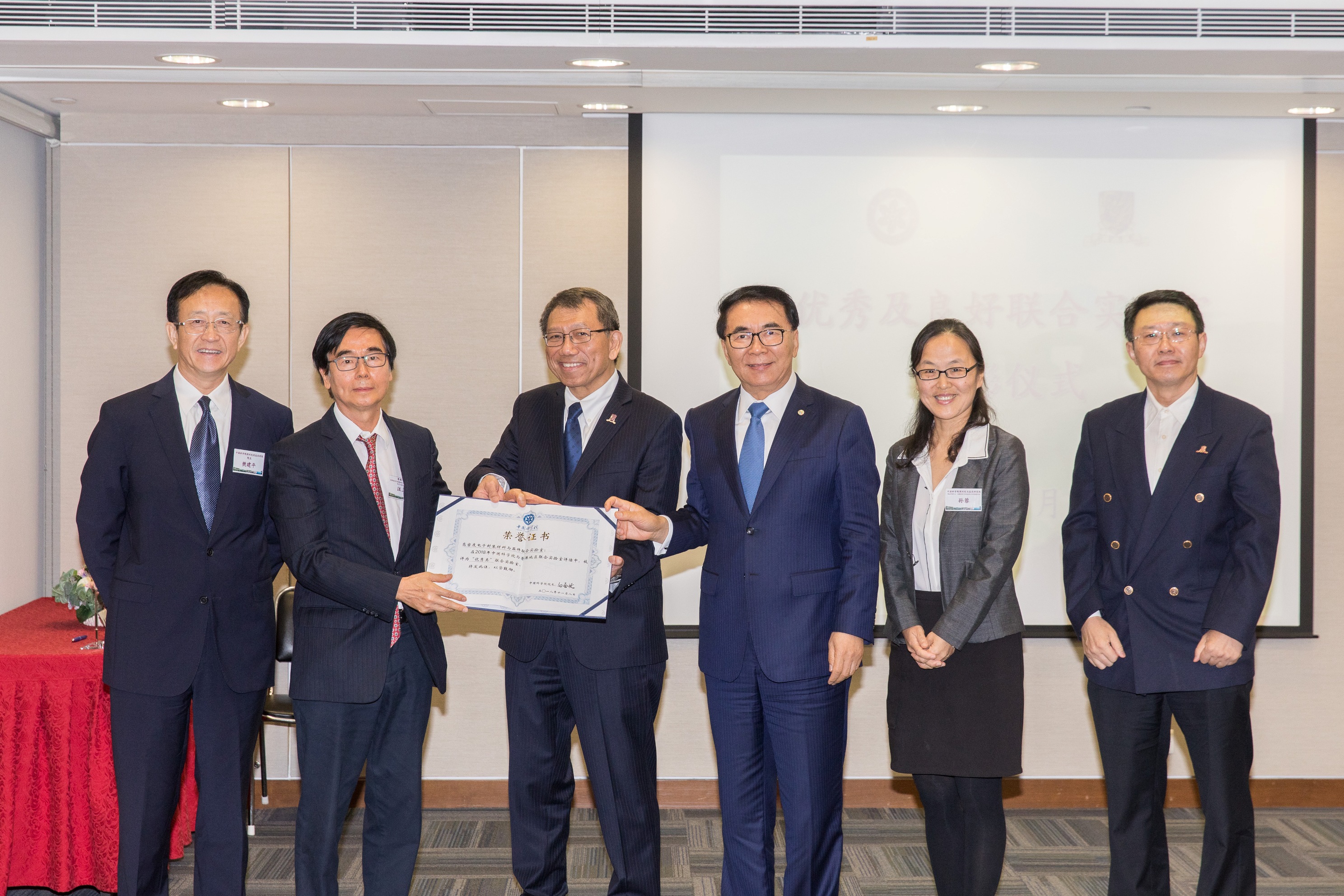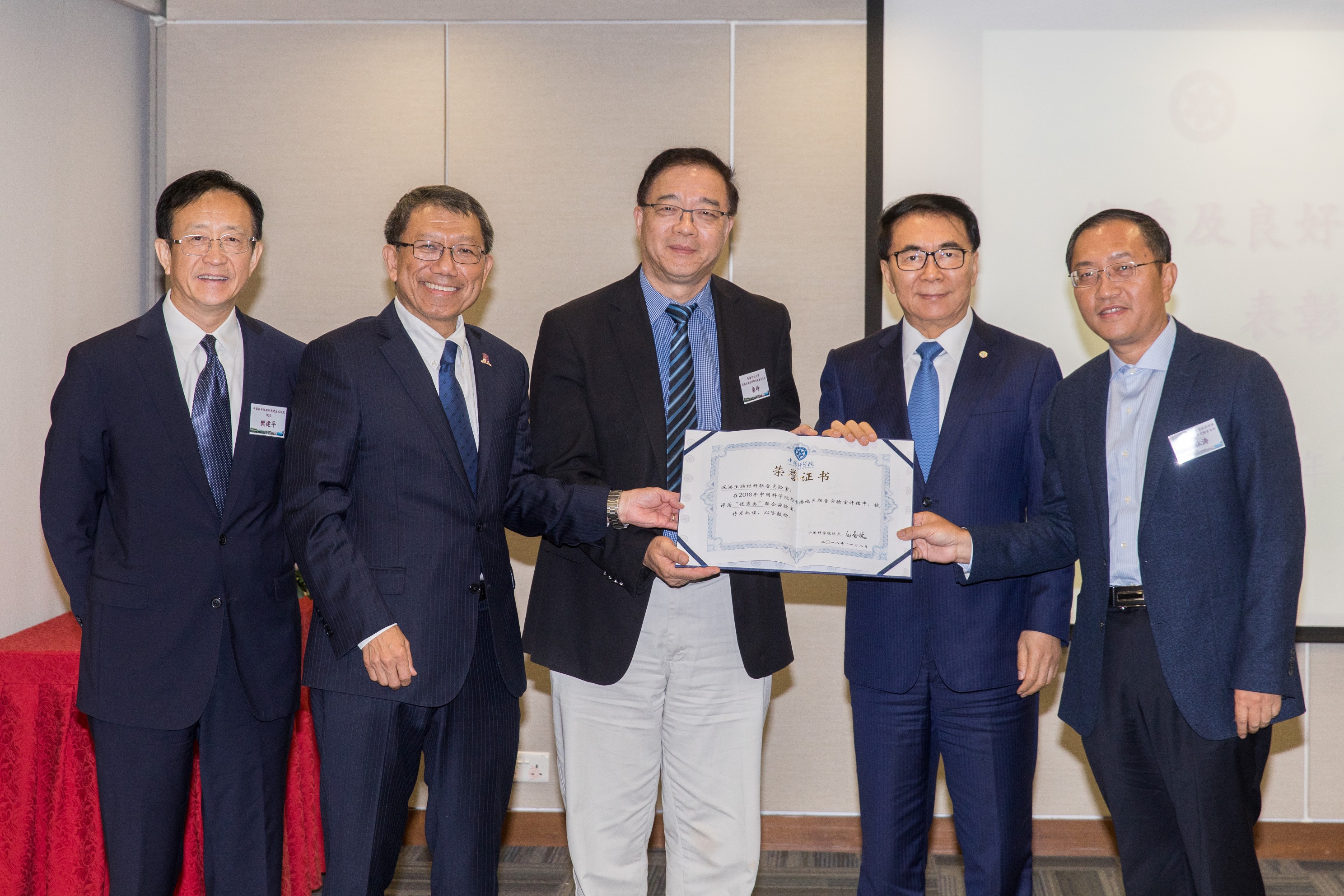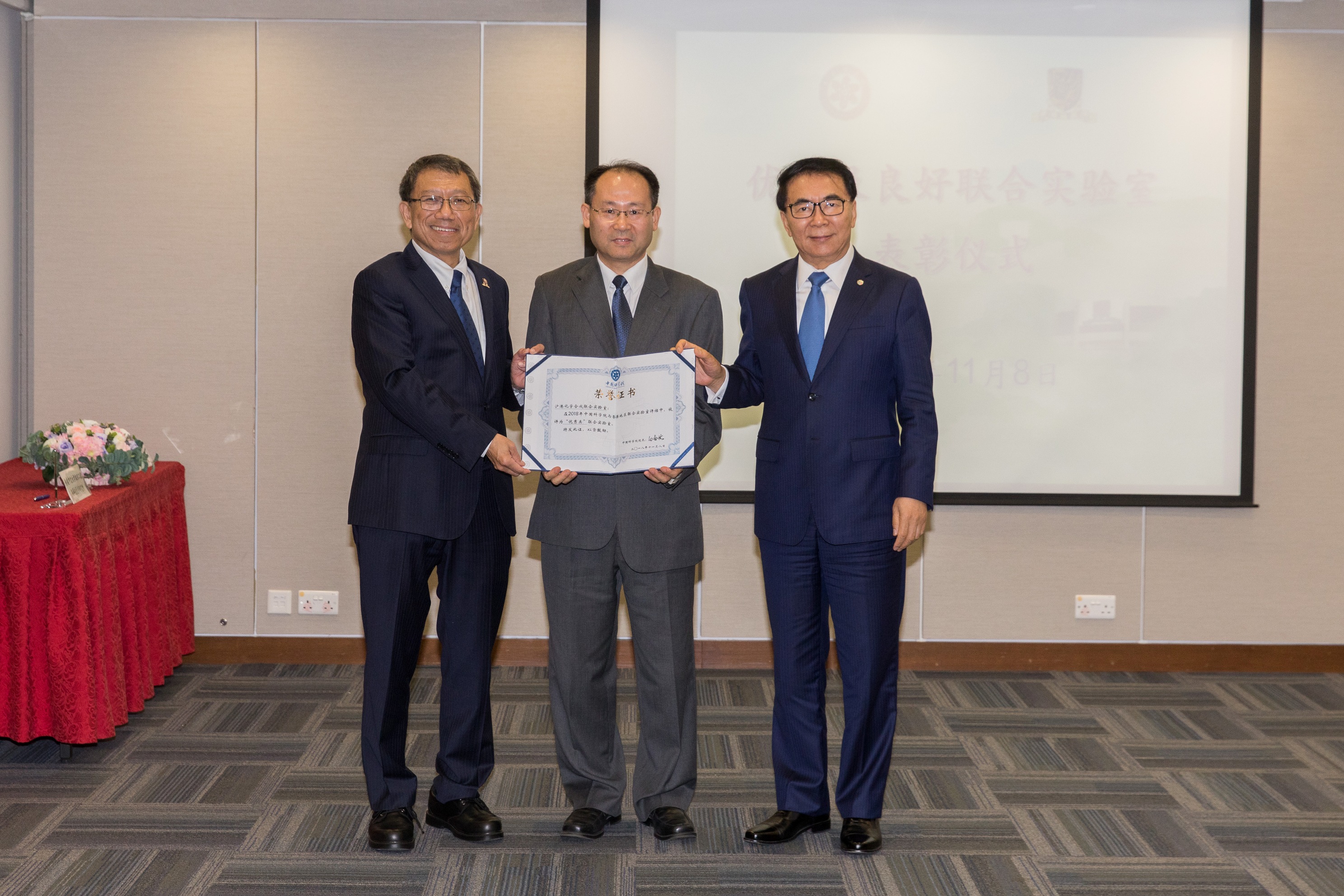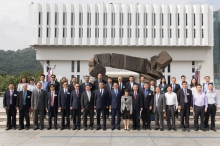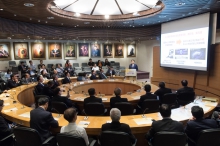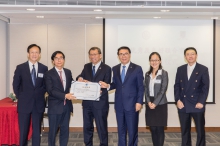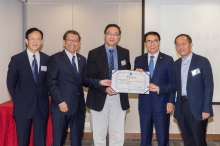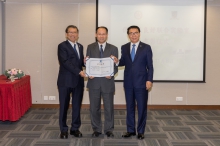CUHK
News Centre
CAS President Professor Bai Chunli Visit to Honour CAS-CUHK Joint Laboratories’ Outstanding Performance
Professor Bai Chunli, President of the Chinese Academy of Sciences (CAS) and Honorary Doctor of Science, honoris causa, The Chinese University of Hong Kong (CUHK), visited CUHK campus on 8 November to attend a series of events. He met with over 40 researchers working at the CAS-CUHK joint laboratories and presented certificates to recognise their work and research achievements. Professor Bai also delivered a distinguished lecture, introducing the Mainland and the world’s latest technological and scientific developments.
CAS-CUHK Joint Laboratories Commended for Outstanding Performance
All 22 CAS joint laboratories in Hong Kong were evaluated earlier this year, including nine that partner with CUHK. There are four laboratories in total that were ranked as “Outstanding”, the best possible grade, three of which are with CUHK. They are: Joint Laboratory for High Density Electronic Packaging Materials and Devices, Joint Laboratory for Biomaterials SIAT—HKU—CUHK, and Shanghai-Hong Kong Joint Laboratory in Chemical Synthesis. In addition, four CUHK laboratories were ranked as “Good” in the same evaluation. The overall performance was remarkable.
Professor Bai said, “Thanks to the close cooperation between the scholars of both sides, the joint laboratories have achieved remarkable results. It is hoped that the complementary advantages will be further capitalised to strengthen the scientific and technological collaboration between the two places, to build up a pragmatic R&D platform.”
Professor Rocky S. Tuan, Vice-Chancellor and President of CUHK, paid tribute to Professor Bai. He remarked, “I am very grateful to Professor Bai for his support for the collaboration between the two parties. CAS has always been a very important strategic partner of CUHK. With the support of Professor Bai, we have conducted joint scientific research in different fields. Up till now, CUHK has carried out collaborative projects with CAS in Beijing, Shanghai, Guangzhou, Kunming and Shenzhen, including the State Key Laboratories, the Joint Laboratories, student training, and the Shenzhen Institutes of Advanced Technology, CAS. The excellent results of these projects are really encouraging. CUHK has recently been invited to join the CAS-led Alliance of International Science Organisations in the Belt and Road Region (ANSO) as one of the founding members – the only member from Hong Kong. Looking forward, we will further strengthen the existing collaborative platform and open up new cooperation in targeted areas, bringing far-reaching impact to the region.”
Since 1986, CUHK and CAS have been working closely to promote and push forward different levels of academic exchange and scientific research cooperation in the fields of stem cell and regenerative medicine, biological resources, synthetic chemistry, medicinal botany, material science, solar energy, multimedia and precision engineering. Every year, CAS academicians are invited to visit CUHK to forge academic exchange between the University and CAS. CUHK is also co-organising two events being held this month in Hong Kong: the CAS-led technological and innovative achievements annual touring exhibition, and Science Talks given by CAS Academicians.
Professor Bai Delivered a Distinguished Lecture
Professor Bai also delivered a Distinguished Lecture during his visit at CUHK. The topic was “New Trends in Innovation and Technology Development: China and the World” which was well-attended by over 200 scholars, students, alumni and members of the public.
As the leader of the state academic institution in science and technology, Professor Bai introduced the process, achievements and deficiencies of technology development in Mainland China. He further explained the objectives and main deployment of innovation-driven development strategy, analysed the global innovation and technology trends and characteristics, and envisaged the future cooperation between CUHK and CAS.
Professor Bai is a world-renowned nanotechnology expert. In 2010, he became the first Chinese scientist to receive the contribution award for nanoscience and nanotechnology development from UNESCO. In 2015, CUHK conferred upon him the Degree of Doctor of Science, honoris causa, in recognition of his significant contributions.
The Joint Laboratory for High Density Electronic Packaging Materials and Devices was ranked as “Outstanding” in the Assessment of the Hong Kong-CAS Joint Laboratories 2018.
The Joint Laboratory for Biomaterials SIAT—HKU—CUHK was ranked as “Outstanding” in the Assessment of the Hong Kong-CAS Joint Laboratories 2018.


